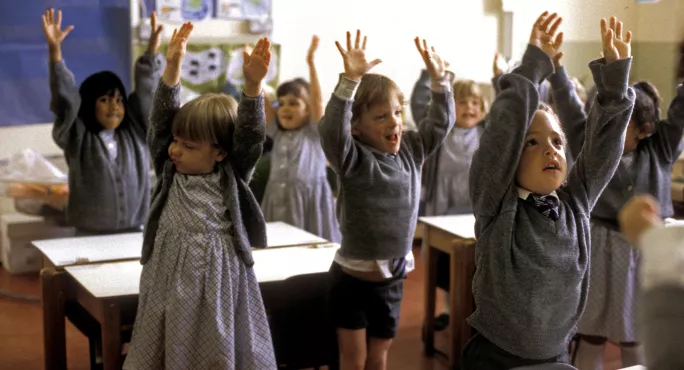“Come on, keep moving,” I said, shepherding the line of children past the 13th-century church and towards the stone bridge. I went back to move on two of our visiting boys who were hanging over the bridge, unable to take their eyes off the stream flowing gently below.
“Miss, Miss, are there crocodiles and snakes in this river?” one of them asked me. I looked at him but there was nothing but earnest enquiry in his eyes.
“Don’t worry, there are no crocodiles or snakes,” I told them. “Just small fish and, sometimes, frogs”.
“What’s a frog?”
It was the second day of our school’s exchange project. The official title is “cultural cohesion”, which basically translates as “taking a bus-load of children from a leafy, middle-class school to spend a day at an inner-city school in a statistically impoverished, culturally different area, and then repeating the process in the other direction so that the horizons of all children are widened in the common pursuit of ‘British values’”. So far, so vaguely patronising to all concerned.
Only, the kids really enjoy it.
“This has been the best day of my life,” said Noah as we lined up to be buzzed out of their high-security gates at the end of the first day. “I’m going to ask my mum if we can move here so I can go to school with Abdul and Wahid. The stuff in their playground is awesome.”
And the feeling was mutual.
“This is the most beautiful place I’ve ever seen,” one of the girls told me throughout a mouthful of raspberry ripple, as we sat outside the ice cream shop the next day.
School exchanges: broadening horizons
“Where we live, there’s loads of crime and litter. Someone smashed the windows of our mosque but here it’s all clean and there’s no crime.”
“Mmmmm,” I said noncommittally, my eyes drifting to the BNP sticker on a nearby white van.
The days had been carefully planned by both schools with an eye on showcasing the local area highlights. We went to a church (where the visiting school could answer twice as many questions about churches and Christianity than our own children could). They took us to a local café for the most amazing samosas, causing our children to drink their entire day’s supply of water as they struggled with the unaccustomed spice levels. But, actually, it didn’t really matter what we did - they were just happy to be out of the classroom and chatting about YouTube, gaming and footballers with their new friends.
There were revelations on both sides. Our children were shocked by the amount of litter in the streets (not helped by the dead rat we saw lying on a drain). Their children were stunned that our kids had chocolate and crisps in their packed lunches. Friendships sprung up instantly (until a football appeared and they immediately retreated to their own school tribe).
The staff had no such integration blips. Having taught in similar schools, I was visited by wistful memories of funding for support staff and parents who implicitly trust you to get on with the job. But hearing about their many catch-up classes for English and maths and the streaming that starts in Year 2 made me grateful for the mixed-ability freedom that I currently enjoy.
Like all good things, the visits had to come to an end. At the end of the second day, our kids made a human tunnel along which they high-fived the visitors goodbye as they made their way back to the coach and their school - 21 miles and half a world away.
Jo Brighouse is a pseudonym for a primary teacher in the West Midlands




